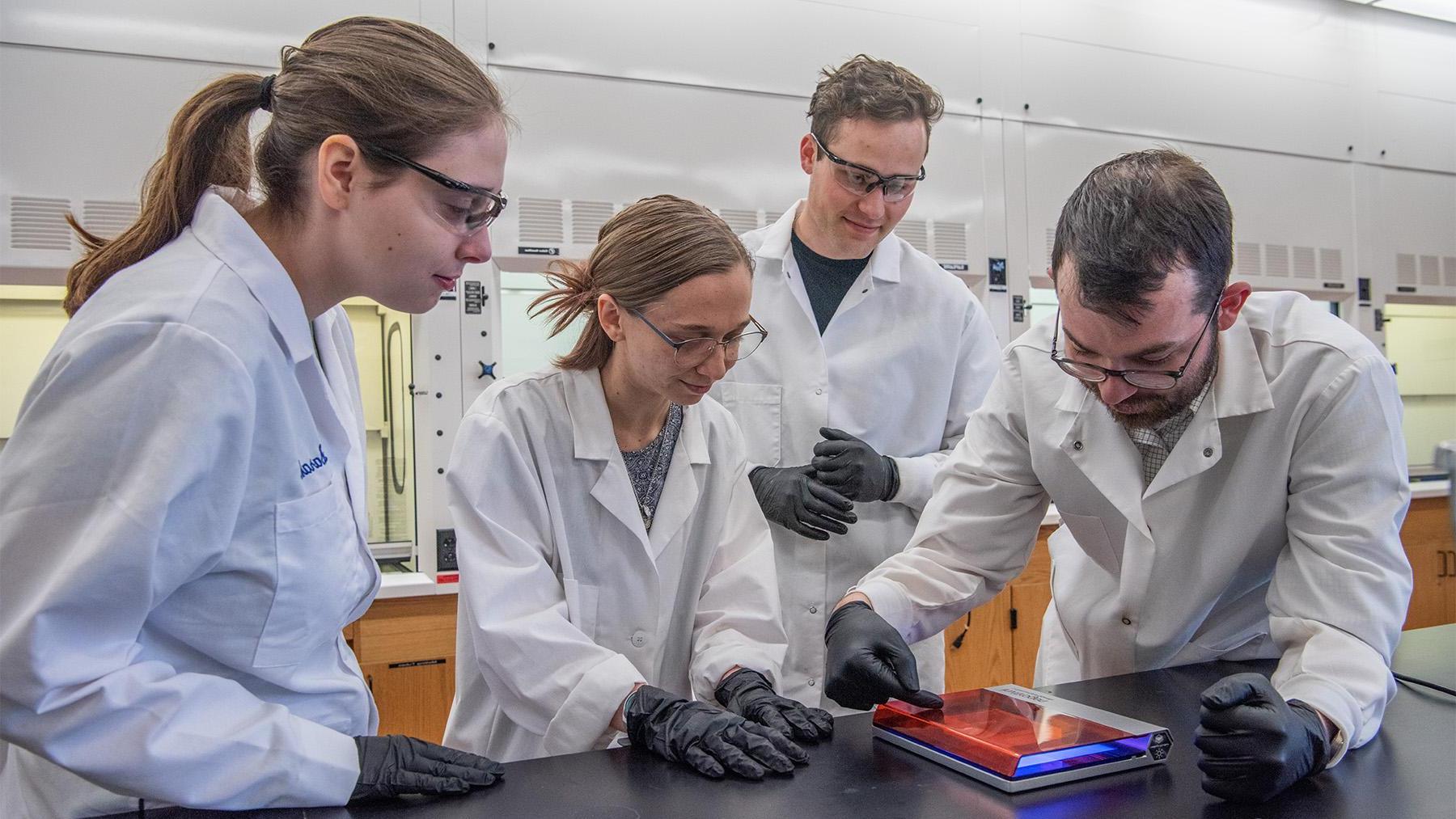Biology

-
Program TypeMajor, Minor
-
Degrees OfferedB.S.
-
SchoolSchool of Arts & Sciences
Prepare for a career as a professional biologist. Gain the background you need for medical, dental, or chiropractic school.
What You’ll Learn
The biology major provides a broad foundation in the biological sciences. In addition to gaining communication, analytical, and critical thinking skills, you will gain an understanding of the role that individuals and society play in improving our natural environment.
- Prepare for Professional School
Combine your biology major with study in our pre-medicine, pre-chiropractic, pre-dental, pre-optometry, pre-pharmacy, pre-physician assistant, pre-podiatry, or pre-veterinary.
- Prepare for a Career in Wildlife or Conservation
Combine your biology major with a wildlife management & conservation concentration and develop the skills for an entry-level biologist position with a government agency, non-governmental organization (NGO), or private company. This concentration will also prepare you for a graduate program in wildlife biology, conservation, ecology, and other related fields.
- Gain Hands-on Experience
Gain hands-on laboratory experience and research skills through our student-led research projects. Students also have the opportunity to participate in our SURVE program and conduct independent research with biology faculty.
- Become an Educator
For those interested in teaching at the high school or middle school level, you can combine your major with the biology education or health education degree in preparation for getting your teaching license.
- Get Your Degree in Less Time
You can earn your biology bachelor’s in 2.6 years or complete your bachelor’s and a Master of Science in Bioethics in four years through Mary’s innovative Year-Round Campus program.
Program Information
Please visit our catalog for admission requirements and a full list of our courses.
Featured Faculty

Joseph Biggane, PhD
Chair of Biology, Assistant Professor of Biology
Born and raised in North Pole, Alaska, I have called North Dakota home since 2010. I am driven by my passion for finding unconventional solutions to difficult puzzles. I started at Mary upon completing my PhD in Biomedical Sciences, where my dissertation focused on cell signaling in epilepsy. In my spare time, I enjoy camping and spending time with my wife, Dr. Emily Biggane, and children, Eleanor, Winnie, and Hank.

John Boyle, PhD
Assistant Professor of Biology, Fellow in Catholic Studies
I am a biologist with an interest in using big data sets, both molecular and ecological, to understand the natural world and the relationships among different species.

